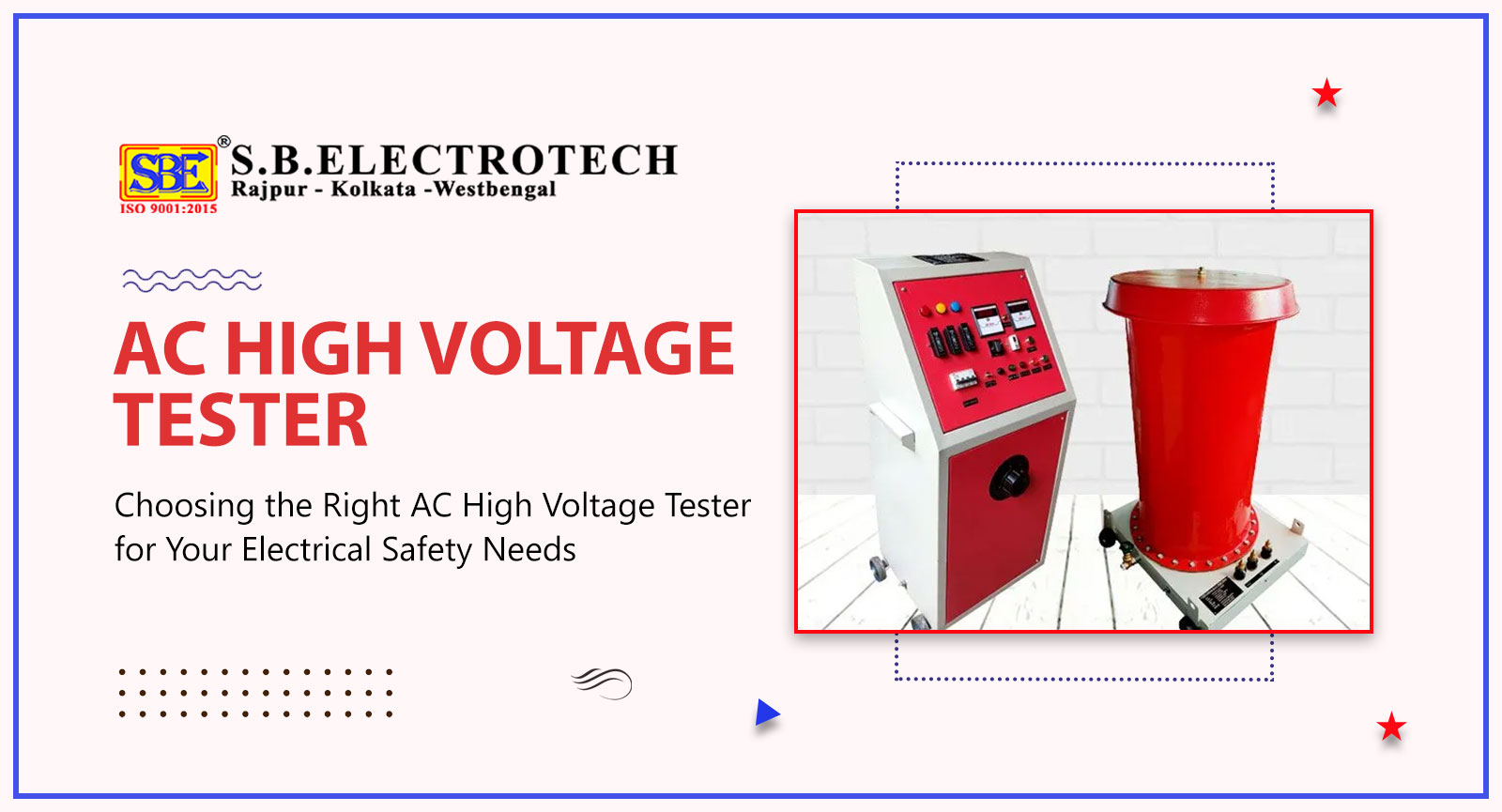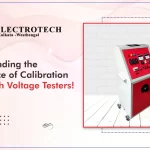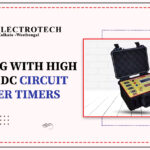Ensuring the safety and integrity of electrical equipment is paramount for various industries, from high-voltage power lines to intricate medical devices. Selecting the right AC high voltage tester lies at the heart of effective maintenance and safety protocols. But with a plethora of options and varying specifications, choosing the right tester can be daunting. This blog explains the crucial factors to consider when choosing the ideal high voltage tester for your specific needs.
Understanding Your Needs: The First Step
Before embarking on the quest for the perfect AC high voltage tester, a clear understanding of your testing requirements is vital. Ask yourself:
- What voltage range do you need to test? Common choices include low voltage (up to 1 kV), medium voltage (up to 30 kV), and high voltage (above 30 kV).
- What type of equipment are you testing? Different testers cater to specific equipment types, like transformers, cables, or insulation materials.
- What tests do you need to perform? Common tests include breakdown voltage, leakage current, and capacitance measurement.
- What safety features are essential? Ground fault protection, interlock systems, and emergency stop buttons are crucial for user safety.
Here Are the Diverse AC High Voltage Testers
Now that you have a roadmap, let’s explore the different types of AC high voltage testers available:
- Dielectric Breakdown Testers: These testers subject insulation materials to increasing voltage until breakdown occurs, measuring the breakdown voltage, a crucial indicator of material integrity.
- AC Hipot Testers: Also known as AC withstand testers, these apply high voltage for extended periods to verify equipment’s ability to withstand operational stresses.
- Partial Discharge Testers: These detect and analyze partial discharges within insulation, pinpointing potential weaknesses before they evolve into failures.
- Multifunction Testers: Combining functionalities of various testers, these offer versatility but might lack the depth of dedicated testers.
Choosing the Right High Voltage Tester: Key Considerations
With the tester types in mind, delve into the specific features that differentiate them:
- Voltage and Current Ratings: Ensure the tester’s capabilities align with your required voltage range and current needs for accurate and safe testing.
- Test Standards Compliance: Opt for testers compliant with relevant industry standards like ASTM or IEC for reliable and verifiable results.
- Ease of Use and Portability: Consider the user interface, size, and weight, especially if frequent field testing is required.
- Data Acquisition and Reporting: Assess the availability of data logging and reporting functionalities for efficient testing documentation.
- Safety Features: Ensure the tester boasts robust safety features like interlocks, grounding, and emergency stop mechanisms.
- Brand Reputation and Service: Choose a reputable manufacturer with a proven track record and readily available support services.
Remember: Price shouldn’t be the sole deciding factor. Invest in a quality AC high voltage tester that ensures accurate testing, user safety, and long-term value.
Conclusion:
Selecting the right AC high voltage tester requires careful consideration of your specific needs and available options. You can make an informed decision that promotes electrical safety and equipment reliability by understanding your testing requirements, exploring different types, and analyzing key features. Remember, investing in the right tester can save you time, and money, and potentially prevent costly equipment failures down the line.

S.B.ELECTROTECH
S.B. Electrotech is a company that specializes in manufacturing of electrical and electronic testing and measuring instruments. With years of expertise in this field, we ensure to provide high quality, safe, and sustainable products.




